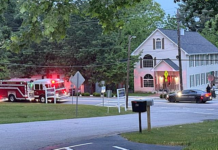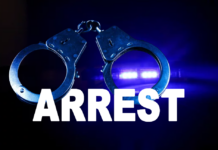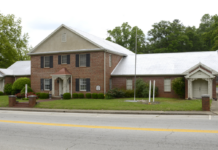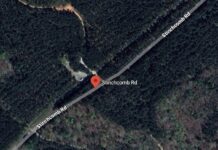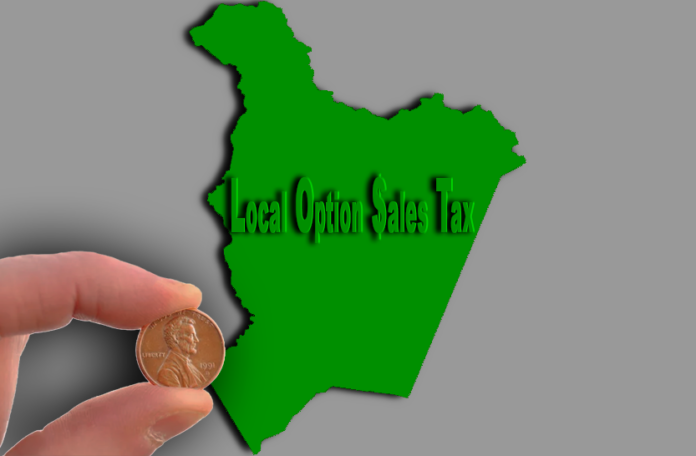
The simple answer is LOST (Local Option Sales Tax) is a sales and use tax designed specifically to be applied, dollar for dollar, to rollback property taxes for property owners. This topic has been discussed in Habersham County from time to time for the last three decades.
Now that the question has been raised again, it will surely be a hot campaign topic during this year’s primary election cycle.
Over the years, local elected officials have complained that the county “gave away” LOST to the county school board. Earlier this year, it was discovered that is not the case.
In 1984, the Habersham County Board of Education petitioned the state legislature for a constitutional amendment to allow it to levy a sales and use tax for educational purposes (ELOST). That amendment required the tax to be applied to rolling back the property tax millage rate. The amendment also stated that the legislation did not prohibit Habersham County or its cities from levying a LOST tax.
In 1992, a statute was passed by the state legislators that counted the ELOST tax as part of the county’s 2% cap, that prohibited the county from bringing forward a LOST referendum to the voters.
According to the Association of County Commissioners of Georgia (ACCG), 147 out of 159 counties have a lost tax. Habersham County is one of the remaining twelve counties without the tax.
Majority of commissioners open to the idea
Habersham County commissioners were polled during their winter retreat at the end of January on whether they were open to the idea of a Local Option Sales Tax (LOST) to lower property taxes. Four of the five commissioners were open to the idea.
“The only people that are paying to run the county’s day-to-day operations are property owners,” said Commission Chair Ty Akins. “This would be a way to spread that operational cost to everybody coming through.”
LOST, as intended, is meant to offset the tax burden on property owners. However, if LOST is approved and budgets are increased, that offset can be negated.
Akins did not indicate that he was open to increasing the budget. However, he did reference services that were lacking based on complaints from citizens over the years.
“It would be nice to provide some of these services that we hear about all the time or improve what we have. I think that (LOST) would allow us to do that.”

At the winter retreat, Commissioner Bruce Harkness said he was open to the idea of LOST as a means to provide property tax relief. However, since then, Harkness has expressed reservations about adding a new sales tax.
“I have a lot of concerns and a lot of questions before I can make a decision right now,” he recently told Now Habersham. Harkness said a referendum should be held for the voters.
“I will investigate it more and give my opinion at that time,” he said.
SEE RELATED: HABCO Commission talks Local Option Sales Tax at retreat
LOST would push more of the county’s tax burden onto consumers.
“Ultimately, I think it would be a positive thing for us to pursue,” said Commissioner Dustin Mealor. Still, he has his reservations.
“I believe that we also need to take caution in being responsible with the increased incoming taxes in a way that allows us to give the full rollback to our citizens on their property taxes,” Mealor says. “If we don’t handle that responsibly, the voters will definitely not support continuing SPLOST moving forward.”
At the winter retreat, Commissioner Jimmy Tench said he was opposed to implementing another tax on Habersham County citizens. He remains unwavering in his opposition.
“You dang right, I am!” he said when asked whether he was still against the penny-on-the-dollar tax.
He also remains opposed to the possibility of any budget increases.
“We do not need to increase the budget,” he said.
‘Flex’ LOST
Habersham County administrators enlisted the assistance of District 10 State Representative Victor Anderson (R-Cornelia) to address Habersham County’s inability to have a LOST tax.
The county’s inability to implement a LOST tax is due to a statute that caps a county’s sales and use tax levy at two percent. The one percent Education Local Option Sales Tax (ELOST) that the Habersham County School Board receives counts against the county’s two percent.

Anderson introduced a simple amendment to the statute that would have exempted educational sales and use taxes from the county’s two percent cap. However, the amendment did not make it out of the House.
Another bill, House Bill 581, addressed the issue and was advanced and amended by the Senate. It is now awaiting the Governor’s signature.
According to Anderson, the new bill addresses the sales and use tax and exempts the one percent ELOST tax that counts against the county. It also changes LOST to a “Flex LOST.”
Similar to LOST, the new “Flex LOST” can only be used for property tax relief and provides for a millage rate rollback on property taxes.
However, there was one significant change. Once voted in, LOST was a forever tax, never voted on again by voters. The Flex LOST has a “sunset clause,” similar to SPLOST (Special Local Option Sales Tax).
Once implemented, the tax runs for a maximum of five years. It must be placed on a referendum again and approved by voters in order to be reimplemented.
How much is at stake
Should a new sales and use tax be implemented, it would increase Habersham’s current sales tax at the register from 7% to 8%.
“Majority of counties already have a 8% sales tax already,” said Commissioner Bruce Palmer. “I believe the rollback would benefit our citizens because of the decrease in the millage rate resulting in lower taxes.”
No one knows how much revenue a Flex LOST would generate for the county, but one could make a good estimate based on what the board of education draws in from ELOST. The school board receives every penny of that sales and use tax. In 2023, the BOE collected $9,943,444 from ELOST.
Unlike the school board, Habersham County would not get to keep every penny collected from its LOST. The county would have to negotiate with the cities to determine how the revenue would be distributed.
If, after negotiating with the cities, the county received 74% of the Flex LOST revenues, it would take in approximately $7.3 million to roll back property taxes.
Budget control
For some voters, another tax would be an issue, but the bigger issue is the budget.
Over the last three years, the budget has increased by 48.2% or $7,121,795. Nothing in the law would prevent commissioners from continuing to increase the budget, ultimately negating any potential property tax rollback.

Habersham County Manager Alicia Vaughn was asked if the maintenance and operations budget would increase if Flex LOST were approved.
“Administration will perform a thorough budget process which includes meeting with each director and elected official to discuss operating and capital needs and to address any desired changes in service delivery,” she responded.
Vaughn pointed to the commissioners as the approving authority for the budget.
“The budget is prepared and presented to the Board of Commissioners (BOC). It is the BOC’s role to make recommendations to the budget and ultimately approve the budget.”
Local voters prone to defeat tax referendums
Habersham County voters have not always been open to a sales and use tax or property tax increases.
In 2012, Habersham County voters joined voters from across the area in defeating a regional Transportation Special Local Option Sales Tax (TSPLOST) referendum.
In 2013, Habersham voters defeated a SPLOST referendum. It took another year before they approved a new SPLOST.
In 2019, voters defeated a bond referendum to build a new jail in Habersham County. That proposal would have raised property taxes an additional 1.38 mills.
Over the course of the last four years, Habersham County voters have twice defeated a countywide TSPLOST.
It will be interesting to see if voters will be open to approving a Flex LOST next year should the county commission place it on a referendum.



